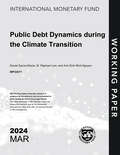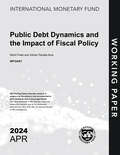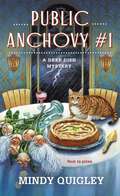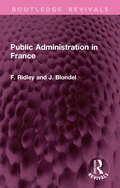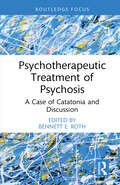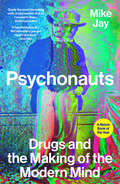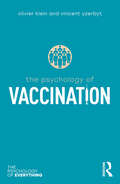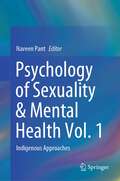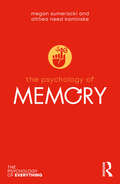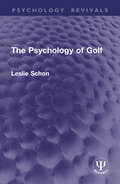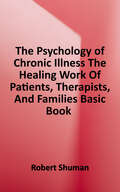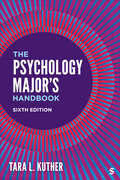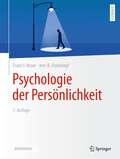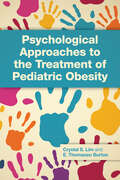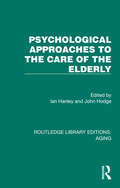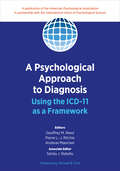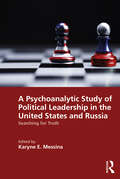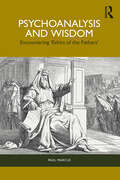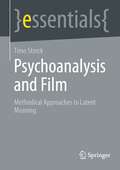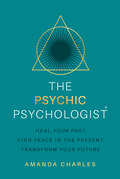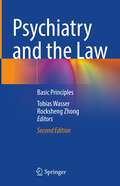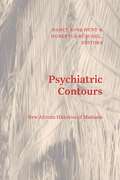- Table View
- List View
Public Debt Dynamics During the Climate Transition
by NguyenA report from the International Monetary Fund.
Public Debt Dynamics and the Impact of Fiscal Policy
by Peralta AlvaA report from the International Monetary Fund.
Public Anchovy #1: A Deep Dish Mystery (Deep Dish Mysteries #3)
by Mindy QuigleyPublic Anchovy #1 is the third book in Mindy Quigley's delectable Deep Dish Mystery series, set in a Wisconsin pizzeria.While Geneva Bay’s upper crust gets ready to party down at a Prohibition-themed fundraiser, pizza chef Delilah O’Leary is focused on seeing her struggling restaurant through the winter slow season. The temperature outside is plummeting, but Delilah’s love life might finally be heating up, as hunky police detective Calvin Capone seems poised to (finally) make a move.But Delilah’s hopes of perfecting a new “free-from” pizza recipe for a charity bash are dashed when a dead body crashes the party. Soon, Capone, Delilah, and her entire staff are trapped in an isolated mansion and embroiled in a dangerous game of cat and mouse.To catch an increasingly-desperate killer, Delilah will have to top all of her previous crime-solving accomplishments, and a few pizzas, too.
Public Administration in France (Routledge Revivals)
by F. F. Ridley J. BlondelOriginally published in 1964, this book was an important addition to the growing field of comparative government and administration. This book covers the organisation of the French cabinet, the structure and functions of government departments and of local authorities, the civil service, the police, the judiciary and public enterprise. There are also chapters on economic planning, the administration of social services and of the educational system. The book explains the spirit as well as the mechanism of the French administrative system, the principles that underly it and the wider background against which it is set
Psychotherapie von Anfang bis Ende: Schritt für Schritt durch den therapeutischen Prozess
by Markus GmelchDie Ergebnisse der Psychotherapieforschung können am stimmigsten von einem kontextuellen Metamodell interpretiert werden: In der therapeutischen Beziehung werden hilfreiche Kontexte für KlientInnen angeboten und individuell angepasst, die diese zu Klärung, Veränderung und Ermutigung nutzen können.Vor diesem Hintergrund stellen sich angehenden PsychotherapeutInnen ganz praktische Fragen: Was macht denn eine Beziehung „therapeutisch“? Wie kann ich den Prozess von Beginn an hilfreich strukturieren? Wie gelange ich zu „wohl formulierten“ Therapiezielen? Wie kann ich KlientInnen ihre eigenen Interventionen finden und erfinden lassen? Wie gehe ich mit „unmotivierten“ KlientInnen um? Und was mache ich bei Rückschritten? Wie kann ich mich auf jede einzelne KlientIn individuell einstellen und „anschlussfähige“ Fragen stellen? Und was kann ich tun, dass KlientInnen langfristig auch ohne mich zurechtkommen?Dieses Lehrbuch vermittelt PsychotherapeutInnen Grundlagen zum gesamten therapeutischen Prozess und bietet Orientierung und Struktur für zahlreiche schwierige Situationen an - Heuristiken, die wiederum genutzt und angepasst werden können. Viele Transkripte und Beispiele veranschaulichen und konkretisieren die Vorgehensweise.
Psychotherapeutic Treatment of Psychosis: A Case of Catatonia and Discussion (Routledge Focus on Mental Health)
by Bennett E. RothThis book explores the psychoanalytic treatment of a patient with psychosis from a range of different psychotherapeutic perspectives.The psychotherapeutic treatment of psychotic individuals is both rare and controversial with a limitation in availability of clinical material. As psychoanalytically oriented therapy is private, it is almost impossible to “witness” the actual human interaction of therapeutic process. While catatonia is a rare disorder, there are many attempts to hypothesize a theoretical psychic structure for the range of disorders called psychotic. Therapists rarely report “successful” outcomes of long and unusual treatments. In the book, a fragment of the treatment of a catatonic adolescent is reconstructed as an endeavor in representing that which is not clinically representable. Following the case report, which also reveals part of the history of the therapist, prominent analytic clinicians of different theoretical orientations share their understanding and comment on the material revealed.With a fresh perspective on psychoanalytic treatment of psychosis, this book is essential reading for psychoanalysts, psychotherapists, and clinicians involved in the treatment of psychosis.
Psychoneuroendokrinologie in der psychosozialen und psychotherapeutischen Praxis: Ein biopsychosozialer Coachingansatz
by Julia WiederhoferWas sind Hormone und welche Bedeutung haben sie für die Psyche bzw. unser Verhalten? Beeinflussen Hormone unsere Psyche bzw. unser Verhalten? Kann unser Verhalten unsere Hormone beeinflussen? Besteht ein Zusammenhang zwischen Hormonen und psychischen Störungen? In diesem Buch wird das Wechselspiel zwischen neurobiologischen Grundlagen psychischen Erlebens und Verhaltens, den endokrinen Vorgängen sowie psychosozialen Umwelteinflüssen gezeigt. Dabei wird die Grundlagenforschung, sowohl der wissenschaftlichen Disziplin Endokrinologie als auch der Psychoneuroendokrinologie dargestellt und so erläutert, dass auch Leserinnen ohne medizinische oder neurobiologische Vorkenntnisse diese komplexen Wissenschaften verstehen. Dieses Buch zeigt zum ersten Mal, wie diese interdisziplinären Erkenntnisse in einen biopsychosozialen Coachingansatz implementiert werden können, der sowohl zur Aufrechterhaltung als auch zur Förderung der psychischen Gesundheit dient. Ein Coachingansatz, der für die psychosoziale und für die psychotherapeutische Praxis geeignet ist.
Psychonauts: Drugs and the Making of the Modern Mind
by Mike JayA provocative and original history of the scientists and writers, artists and philosophers who took drugs to explore the hidden regions of the mind A New Yorker Best of the Week Pick “Jay is a leading expert on the history of Western drug use, and Psychonauts is the latest in a series of excellent studies in which he has investigated the roots of a kind of psychoactive exploration that we tend to associate with the nineteen-fifties and sixties.”—Clare Bucknell, New Yorker “Captivating. . . . A welcome reconsideration of the role drugs play in life, medicine, and science.”—Publishers Weekly Until the twentieth century, scientists investigating the effects of drugs on the mind did so by experimenting on themselves. Vivid descriptions of drug experiences sparked insights across the mind sciences, pharmacology, medicine, and philosophy. Accounts in journals and literary fiction inspired a fascinated public to make their own experiments—in scientific demonstrations, on exotic travels, at literary salons, and in occult rituals. But after 1900 drugs were increasingly viewed as a social problem, and the long tradition of self-experimentation began to disappear. From Sigmund Freud’s experiments with cocaine to William James’s epiphany on nitrous oxide, Mike Jay brilliantly recovers a lost intellectual tradition of drug-taking that fed the birth of psychology, the discovery of the unconscious, and the emergence of modernism. Today, as we embrace novel cognitive enhancers and psychedelics, the experiments of the original psychonauts reveal the deep influence of mind-altering drugs on Western science, philosophy, and culture.
The Psychology of Vaccination (The Psychology of Everything)
by Olivier Klein Vincent YzerbytWhy do some people choose to be vaccinated and others do not? What is the difference between vaccine hesitancy and anti-vaccinism? What can social psychology tell us about attitudes towards vaccination?The Psychology of Vaccination identifies the social psychological drivers of vaccine mindsets, to explore why some people choose to be vaccinated, some are hesitant, and others refuse. It explores the socio-demographic factors related to vaccine hesitancy and considers the role of motivation in making this health decision. The book focuses on how individuals are social beings, inserted into a web of influences that guide their behaviour, and considers the impact this may have on their health choices.Not only aimed at the convinced, but also for all those who have doubts about vaccination, The Psychology of Vaccination offers an insightful look at our health behaviours and considers whether it is possible to affect health behaviour change.
Psychology of Sexuality & Mental Health Vol. 1: Indigenous Approaches
by Naveen PantThis book focuses on indigenous and Indian concepts of sexuality, exploring its psychology and its relationship with mental health. Through theoretical, review, exploratory and mixed approaches, the book delves into common fields of thought regarding indigenous sexuality which relate to psychology and mental health. In the first section of the book, ‘Psychology of Sexuality & Indigenous Approaches’, the book discusses various indigenous aspects of sexuality, such as Indian indigenous, Hindu, and Buddhist. The second section of the book, ‘Indigenous Psychology of Sexuality and Mental Health’, discusses indigenous aspects combined with sexuality and mental health.
The Psychology of Memory (The Psychology of Everything)
by Megan Sumeracki Althea Need KaminskeHow can I improve my memory? Do my emotions affect my memories? How will my memory change as I get older?The Psychology of Memory provides a unique insight into a fundamental part of being human, debunking many common misconceptions about what memory is, how memory works, and the accuracy of our memories. It explores the complexity of human memory, looking at how we remember different types of information and the impact of issues like ageing and emotion on how we create, store, and retrieve memories. Extremes of memory from so-called photographic memory to dementia are discussed, along with ways our memory can impact our everyday lives in educational and legal settings.Treating memory as malleable, dynamic, and active, The Psychology of Memory teaches us about how our individual memories function, and how we can harness this to see memory in a new way; to use the past, our experiences and information, in service of the present and future.
The Psychology of Golf (Psychology Revivals)
by Leslie SchonFirst published in 1922, The Psychology of Golf examines the mental side of golf from the point of view of the player, and the author’s whole aim is to assist and interest both the expert and the novice. The game of golf is nine-tenths mental and this book attempts to develop those mental skills in a golf player.
The Psychology of Chronic Illness: The Healing Work of Patients, Therapists, and Families
by Robert ShumanWith the onset of chronic illness, an individual and family’s world, previously taken for granted, is often undone. The actual and potential losses from illness impact family, friends, physicians, therapists, nurses, and others in profound and unexpected ways. Through his own honest, personal account and the testimony of others, Robert Shuman takes us inside the illness experience to help us better grasp the daily inner lives of the ailing person and his or her family. As our aging population lives longer, chronic illness touches more and more of us. Whether as patient or parent, nurse or spouse, colleague or therapist, we need to have greater knowledge and understanding of the intricacies of chronic illness. Robert Shuman maps out the many dimensions of illness and invites the reader to explore its challenging terrain in a way that provides opportunities for self-discovery and reflection. In lyrical prose, he opens up new ways of thinking about the psychology of illness and healing. He suggests, for example, that illness symptoms can have a generative effect on a person’s imaginative and creative possibilities, and that the socially despised events of illness and disability offer new ways of being once sought through the work of religion. Drawing on the fields of behavioral and family medicine, medical anthropology and sociology, moral and bioethical philosophies, and family, existential, cognitive, Jungian, and archetypal psychotherapies, among others, The Psychology of Chronic Illness raises provocative questions for the professional caregiver as well as for those living with illness and disability. This book will help anyone touched by illness, personally or professionally, to support those living with chronic illnesses and disabilities; to cope with multiple impacts on work, relationships, social roles, individual dreams, and disappointments; to listen to and voice suffering and fears, grief and anger, questions of values and moral doubts; and to acknowledge loss and mourning as a “common ground” that we all share. This book offers specific resources to the caregiver and aids the professional in his or her ethical obligation to give. Moreover, Shuman’s voice is one of compassion, reminding us how to hold on to or recover hope, meaning, and morale during times of affliction and distress.
The Psychology Major′s Handbook
by Tara L. KutherResearch shows that today′s students are unique. Whether anxious, overwhelmed, or too busy to ask for help, modern students trust and turn to the resources at their fingertips for guidance. Tara Kuther created The Psychology Major′s Handbook for this purpose, to bridge the gap between advisor and manual. Created to support and follow along with a student through college, this text provides the support of an advisor as students navigate choosing a major, learning how to study, writing papers, and deciding what to do after college. Within each chapter, Kuther supports learners in applying concepts to their own lives through embedded exercises. The updated Sixth Edition encourages students to take an active role in their education and explains all of the ways that students can influence their own college experiences. Three individual chapters emphasize academics and cover crucial study and college skills, such as writing a review paper, and an APA Style empirical paper. The final four chapters of the text focus on bachelor′s and graduate opportunities to help students to look past graduation.
The Psychology Major′s Handbook
by Tara L. KutherResearch shows that today′s students are unique. Whether anxious, overwhelmed, or too busy to ask for help, modern students trust and turn to the resources at their fingertips for guidance. Tara Kuther created The Psychology Major′s Handbook for this purpose, to bridge the gap between advisor and manual. Created to support and follow along with a student through college, this text provides the support of an advisor as students navigate choosing a major, learning how to study, writing papers, and deciding what to do after college. Within each chapter, Kuther supports learners in applying concepts to their own lives through embedded exercises. The updated Sixth Edition encourages students to take an active role in their education and explains all of the ways that students can influence their own college experiences. Three individual chapters emphasize academics and cover crucial study and college skills, such as writing a review paper, and an APA Style empirical paper. The final four chapters of the text focus on bachelor′s and graduate opportunities to help students to look past graduation.
Psychologie der Persönlichkeit
by Franz J. Neyer Jens B. AsendorpfDieser Lehrbuch-Klassiker der Differenziellen Psychologie und Persönlichkeitspsychologie bietet alles, was Studierende und Lehrende für das Studium benötigen: Das gesamte Prüfungswissen anschaulich und lernfreundlich aufbereitet, vielfältige Online-Zusatzmaterialien auf www.lehrbuch-psychologie.springer.com zum Lernen und Lehren und praxisnahe Bezüge zu Alltagsleben, Gesellschaft und Berufswelt. – Wer ist ein guter Partner? Wie wird interkulturelles Training gestaltet? Wie wirkt Selbstdarstellung in den neuen Medien? Was ist soziale Kompetenz? – Alles, was den Menschen ausmacht, finden Sie in diesem Buch!
Psychological Approaches to the Treatment of Pediatric Obesity
by Dr. Crystal Stack Lim Dr. Elvin Thomaseo BurtonThis book offers a comprehensive review of current research and theoretical approaches to pediatric obesity. Pediatric obesity is a significant public health concern that currently affects 1 in 5 children and adolescents. Prevention and treatment of this complex health condition requires a multifaceted approach that acknowledges the intersecting roles of gender, race and ethnicity, socioeconomic status, and other factors that play key roles in the onset and maintenance of pediatric obesity. Written for mental health clinicians, as well as medical practitioners such as physicians, nurses, dietitians, and exercise physiologists who care for children and adolescents, this helpful resource offers a comprehensive review of current research and theoretical approaches, as well as clear descriptions of effective strategies to prevent and treat pediatric obesity. Through a lens of diversity, equity, and inclusion, the authors incorporate cutting edge research and their extensive clinical experience and expertise as they review evidence-based treatments that can be incorporated into various settings, including primary care, mental health, and specialty medical care clinics as well as schools and community organizations. With a special focus on psychological factors, including mental health conditions that frequently co-occur with pediatric obesity, this book incorporates case examples, treatment guidelines, and reproducible handouts to make addressing pediatric obesity more accessible to clinicians and practitioners.
Psychological Approaches to the Care of the Elderly (Routledge Library Editions: Aging)
by Ian Hanley John HodgeOriginally published in 1984, the overall purpose of this book was to provide ideas and suggestions about the usefulness of applied psychology in dealing with some of the problems of the elderly.
A Psychological Approach to Diagnosis: Using the ICD-11 as a Framework
by Geoffrey M. Reed Pierre L.-J. Ritchie Andreas Maercker Tahilia J. RebelloThis groundbreaking volume, published by the American Psychological Association in partnership with the International Union of Psychological Science, provides a detailed guide to clinical diagnosis by psychologists and other health professionals based on the eleventh revision of the World Health Organization's International Classification of Diseases (ICD-11). The ICD-11 was adopted by the World Health Assembly in 2019 and came into effect as the global standard for health information and reporting in 2022. The ICD is the diagnostic system for mental disorders most widely used by mental health professionals around the world in their day-to-day clinical practice. This edited volume offers a step-by-step approach to diagnosis, giving mental health professionals around the world the tools they need to apply ICD-11 diagnostic requirements for mental, behavioral, and neurodevelopmental disorders as the basis for delivering high quality, evidence-informed care. A psychological approach to diagnosis is a conceptually driven, person-oriented, biopsychosociocultural formulation that integrates pertinent history, behavior, symptoms, phenomenology, and functioning. A psychological approach focuses on psychological mechanisms and principles as an aspect of diagnostic practice and case formulation, regardless of professional discipline. The chapters of this book cover the major groupings of mental disorder as well as related areas that are important parts of psychological practice, such as sexual dysfunctions, sleep-wake disorders, and relationship problems and maltreatment. The authors of this book are leading global experts in each area, many of whom were integrally involved in developing the respective sections of the ICD-11. Authors describe the overarching logic for the classificatory arrangement and the elements of a psychological approach to the set of disorders discussed in each chapter, including psychological models for conceptualizing their symptoms and recommendations for psychological assessment. The chapters also discuss presentations and symptom patterns for each major group of disorders, specifiers and subtypes, the threshold between normal variation and disorder, differential diagnoses, co-occurring disorders, developmental course, cultural and contextual considerations, and gender-related features. A Psychological Approach to Diagnosis is the first comprehensive training resource on WHO&’s ICD-11 classification of mental, behavioural and neurodevelopmental disorders. It provides practicing psychologists and other mental health professionals, primary care clinicians, educators, and trainees with essential tools for the competent practice of diagnosis using the ICD-11 as a framework.
A Psychoanalytic Study of Political Leadership in the United States and Russia: Searching for Truth
by Karyne E. MessinaA Psychoanalytic Study of Political Leadership in the United States and Russia: Searching for Truth provides psychoanalytic insight into the motives of this complex and contradictory figure.The contributors, from different professional and academic backgrounds, use a range of methods including quantitative research and literary analysis to shed light on Putin’s background, outlook and current actions. Reflecting a range of perspectives on how Putin’s background may have informed his beliefs and his actions, particularly with respect to the invasion of Ukraine, the book brings together diverse viewpoints.A Psychoanalytic Study of Political Leadership in the United States and Russia will be of great interest to psychoanalysts and to readers seeking to understand the complex dynamics of populist leadership.
Psychoanalysis and Wisdom: Encountering ‘Ethics of the Fathers’
by Paul MarcusPsychoanalysis and Wisdom applies psychoanalytic insights into one of the great examples of wisdom literature, the Ethics of the Fathers, an ethical tractate of the Talmud.Paul Marcus quotes key passages from the Ethics of the Fathers, providing a psychoanalytic commentary to enlarge and deepen our understanding of its contents, focusing primarily on what constitutes a flourishing life. Marcus then considers what psychoanalysis can provide in its engagement with this classic of the wisdom teachings, such as illuminating aspects of the Ethics that are overlooked or underappreciated, and how “pearls of wisdom” from the Ethics can be incorporated into psychoanalytic theory and practice. The book contains clinical material as well as the insights of philosophers like Martin Buber, Gabriel Marcel and Emmanuel Levinas.Psychoanalysis and Wisdom will appeal to readers interested in psychoanalysis and psychotherapy and to academics and students of psychoanalytic studies, religious studies, Judaic studies and philosophy.
Psychoanalysis and Film: Methodical Approaches to Latent Meaning (essentials)
by Timo StorckThis essential is dedicated to the connection between psychoanalysis and film. Psychoanalysis is suitable for a methodically guided film viewing. This is not an application of psychoanalytical theory, but rather an application of its method of a reflected relationship to a counterpart. In this way, latent meanings can be taken into consideration and an interpretation can be developed. This essential reconstructs the possibilities of such an approach and presents existing approaches. Finally, a guideline for carrying out a film psychoanalytical interpretation is proposed. Numerous film examples serve to illustrate this.The translation was done with the help of artificial intelligence. A subsequent human revision was done primarily in terms of content.
The Psychic Psychologist: Heal Your Past, Find Peace in the Present, Transform Your Future
by Amanda CharlesDo you feel like your life looks perfect from the outside, but on the inside you&’re falling apart? Have you gone from one practitioner to the next desperately seeking solutions and yet still suffer? If the answer&’s &‘yes&’, then you need The Psychic Psychologist®.Combining traditional psychology, energy work and quantum theory, as well as professional and life experience, The Psychic Psychologist offers a completely unique perspective on healing.With evidence-backed psychological interventions alongside spiritual and intuitive practices, The Psychic Psychologist will help you break free from suffering, transform your pain and go beyond all limitations to create the life you desire. It&’s a book that will help you tap more deeply into your higher power and follow your inner voice, so you can embrace a new reality and consciously construct positive change in your present and for your future.So, no matter how many times life has kicked you when you&’re down, this book will show you that when you&’re fully connected to all the layers of your existence – body, heart, mind and soul – you can turn your pain into purpose and live a life you love.&‘I always hoped that someone would bring a totally new perspective to the way we view human consciousness. Amanda has absolutely done that with this wonderful book.&’Gordon Smith, internationally renowned medium, spiritual teacher and bestselling author.
Psychiatry and the Law: Basic Principles
by Tobias Wasser Rocksheng ZhongThis book is designed to help new psychiatrists and other medical professionals confront the complicated legal and ethical issues that arise at the intersection of the mental health and judicial systems. The law provides the boundaries in which clinical care operates. Appreciating these boundaries is particularly important when working with individuals whose rights may already be curtailed (forensic settings, for example). Understanding how psychiatry and the law interface provides students and trainees with a foundation for building their skills and attitudes through training and beyond. This text can guide or supplement education on the legal regulation of psychiatry, the use of psychiatry to answer legal questions, and the treatment of individuals with criminal justice involvement.In the second edition of this text, the editors have updated several chapters with new information and added chapters covering topics not addressed in the first edition. Each chapter begins witha clinical case vignette that brings the topic to life through a clinical encounter, the majority of which are based on landmark legal cases that set a historical precedent. The text presents details of the legal case, historical significance, and the precedent it set before discussing the core principles of the subject area. Each chapter reviews the existing literature and reinforces the most salient points. Topics include risk assessment, substance misuse and the law, legal issues within child and adolescent psychiatry, involuntary medication considerations, and other challenges that are often not sufficiently addressed in training.Psychiatry and the Law: Basic Principles covers a wide range of topics that would be suitable for use as the basis of a course in forensic psychiatry for psychiatry residents and is an excellent resource for new psychiatrists, psychologists, social workers, students, and other professionals navigating medical and legal boundaries in clinicalpractice.
Psychiatric Contours: New African Histories of Madness (Theory in Forms)
by Nancy Rose Hunt & Hubertus BüschelPsychiatric Contours investigates new histories of psychiatry, derangement, and agitated subjectivities in colonial and decolonizing Africa. The volume lets the multivalent term madness broaden perception, well beyond the psychiatric. Many chapters detect the mad or the psychiatric in unhinged persons, frantic collectives, and distressing situations. Others investigate individuals suffering from miscategorization. A key Foucauldian word, vivacity, illuminates how madness aligns with pathology, creativity, turbulence, and psychopolitics. The archives, patient-authored or not, speak to furies and fantasies inside asylums, colonial institutions, decolonizing missions, and slave ships. The frayed edges of politicized deliria open up the senses and optics of psychiatry’s history in Africa far beyond clinical spaces and classification. The volume also proposes fresh concepts, notably the vernacular, to suggest how to work with emic clues in a granular fashion and telescope the psychiatric within histories of madness. With chapters stretching across much of ex-British and ex-French colonial Africa, Psychiatric Contours attends to the words, autobiographies, and hallucinations of the stigmatized and afflicted as well as of the powerful. Expatriate psychiatrists with cameras, prying authorities, fearful missionaries, and colonial anthropologists enter these readings beside patients, asylums, and boarding schools via research on possession “hysteria” and schizophrenia. In brief, this book demonstrates novel ways of writing not only medical history but all subaltern and global histories.Contributors. Hubertus Büschel, Raphaël Gallien, Matthew M. Heaton, Richard Hölzl, Nancy Rose Hunt, Richard C. Keller, Sloan Mahone, Nana Osei Quarshie, Jonathan Sadowsky, Romain Tiquet
